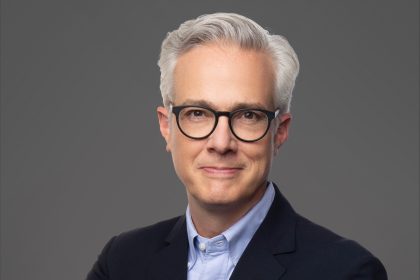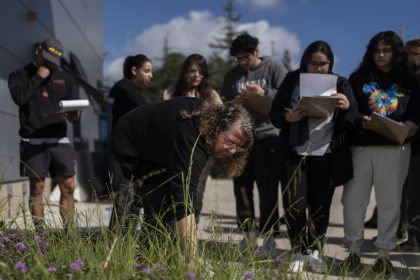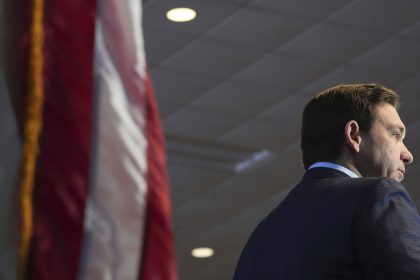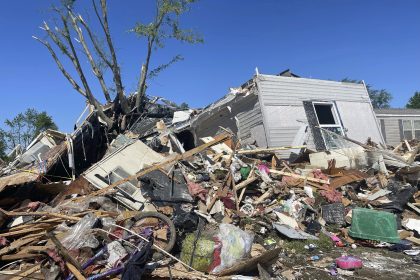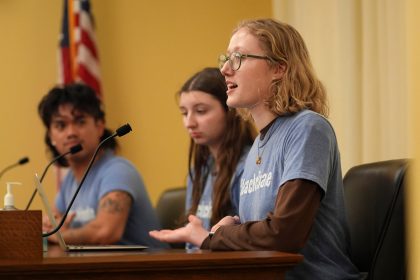Asian Americans and Pacific Islanders in US More Likely to Believe in Climate Change: AP-NORC Poll
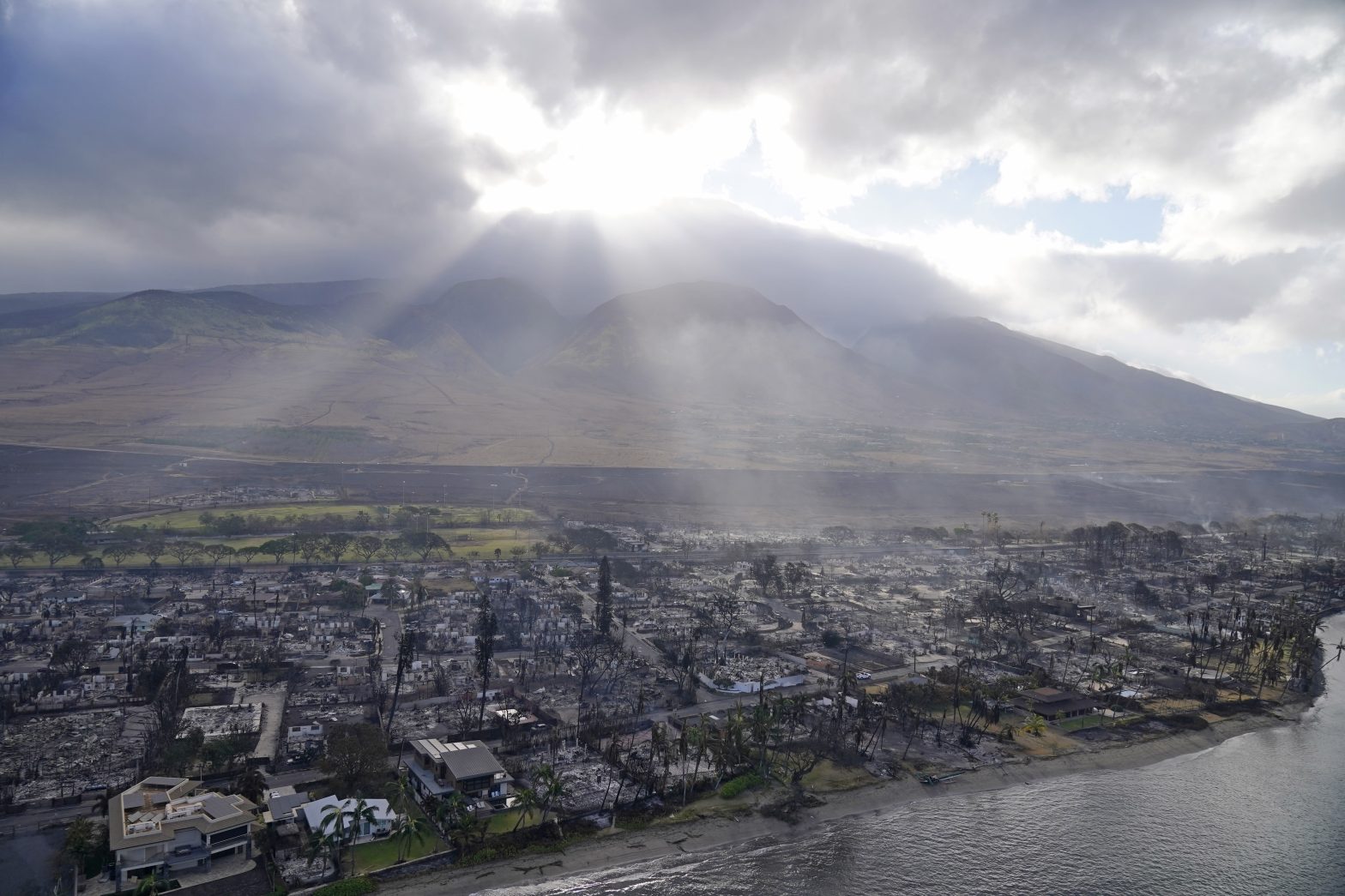
Asian Americans, Native Hawaiians and Pacific Islanders in the United States are more likely than the overall adult population to believe in human-caused climate change, according to a new poll. It also suggests that partisanship may not have as much of an impact on this group’s environmental views, compared to Americans overall.
A recent poll from AAPI Data and The Associated Press-NORC Center for Public Affairs Research finds 84% of AAPI adults agree climate change exists. In comparison, 74% of U.S. adults hold the same sentiment. And three-quarters of AAPI adults who accept climate change is real attribute it entirely or mostly to human activity. Among the general U.S. adult population surveyed in an AP-NORC poll in September, only 61% say humans are causing it.
The poll is part of an ongoing project exploring the views of Asian Americans, Native Hawaiians and Pacific Islanders, whose views can usually not be highlighted in other surveys because of small sample sizes and lack of linguistic representation.
Scientists overwhelmingly agree that heat-trapping gases released from the combustion of fossil fuels are pushing up global temperatures, upending weather patterns and endangering animal species. Many scientific organizations have made public statements on the issue.
In terms of partisanship, the percentage of AAPI Democrats, 84%, who acknowledge climate change falls exactly in line with the share of Democrats overall in the September poll. The share of AAPI Republicans who believe there is a climate crisis is lower, but they somewhat outnumber Republicans in general, 68% versus 49%.
Adrian Wong, 22, of Whippany, New Jersey, is registered as unaffiliated but leans Republican. A biology major in college, the Chinese American says the science behind climate change is indisputable.
“I’ve probably done more or looked more into it than the average person has,” Wong said. “It’s to me clear that it’s changing due to human activity, not natural shifts.”
There has been growing conflict within the Republican Party between those who insist climate change is a progressive-generated hoax and those — mostly younger generations — who say the issue cannot be ignored. GOP lawmakers, in general, refuse to consider measures like mandated lowering of carbon emissions. However, some consider that an untenable position long-term. American Conservation Coalition, the largest conservative environmental group in the nation, has said Republicans running for office cannot risk alienating people who care about climate change.
Wong is not surprised that AAPI conservatives like himself recognize that the climate is changing. He thinks they are more highly educated and more likely to be exposed to science, technology, engineering and mathematics.
“It wouldn’t surprise me if they were more likely to have studied more and actually more likely to have studied in science and STEM-related fields rather than, say like, finance or something,” Wong said.
While climate change is an afterthought to her parents, Analisa Harangozo, 35, of Alameda, California, worries a great deal about it. She has noticed a rise in “crazy heatwaves and droughts and just like crazy weather in general” in the San Francisco Bay Area. She and her husband are teaching their sons — ages 7 and 4 — to take small steps to reduce their carbon footprint like composting, growing food and eating less meat. They’re also trying to minimize their accumulation of household items.
“I always second-guess myself, ‘Do I really need this?’” Harangozo said. “Stuff will eventually end up in the landfill. So, we’re really mindful with the products we buy, and whether or not they can be recycled or they’re made from materials that are natural, like wood or what-not.”
A registered independent with Democratic leanings, Harangozo is open to proposals from California Gov. Gavin Newsom and other state lawmakers to slash greenhouse gas emissions and invest in renewable energy.
“I’m not knowledgeable enough to know what an attainable goal is,” she said. “But, whatever it takes to actually make a difference, I’m all for it. I fully support.”
Karthick Ramakrishnan, a public policy professor at the University of California, Riverside, and founder of AAPI Data, said the richness and detail of the data shows environmental groups need to consider reaching out to AAPI populations. They make up a relatively small share of the U.S. population — around 7%, according to a Pew Research Center analysis of 2021 census data — but their numbers are growing quickly.
“Asian American and Pacific Islander voters are environmental voters,” Ramakrishnan said. “Many of us still have an image in our minds of a particular kind of person maybe of a particular race, gender or age group. What we see here is across the board Asian Americans and Pacific Islanders care about the environment.”
Asian American and Pacific Islanders may also have more of a stake in climate change because of connections to relatives abroad. China, considered one of the world’s biggest emitters of greenhouse gases alongside the U.S., vowed last year to reduce emissions. More Chinese companies are considering selling wind and solar power equipment in other countries. Around this time last year, Japan was preparing for another sweltering summer and risks of floods and landslides. That country has also pledged to curb emissions.
Heavy rains swept across Pakistan last month, causing landslides and leaving over 36 people dead and dozens of others injured. In 2022, unprecedented rainfall and flooding in that country killed more than 1,700. In India, farmers are grappling with frequent cyclones and extreme heat. In southern India, the city of Bengaluru is seeing water levels running desperately low after an unusually hot February and March.
“There’s a fairly high level concern of what climate change means to low-income countries,” Ramakrishnan said. “That sensitivity is either because people still have friends or family back in their home country or at least have some concern about what climate change does to other countries.”
___
The poll of 1,005 U.S. adults who are Asian American, Native Hawaiian and Pacific Islanders was conducted from March 4-11, 2024, using a sample drawn from NORC’s probability-based Amplify AAPI Panel, designed to be representative of the Asian American, Native Hawaiian, and Pacific Islander population. The margin of sampling error for all respondents is plus or minus 4.9 percentage points.


















